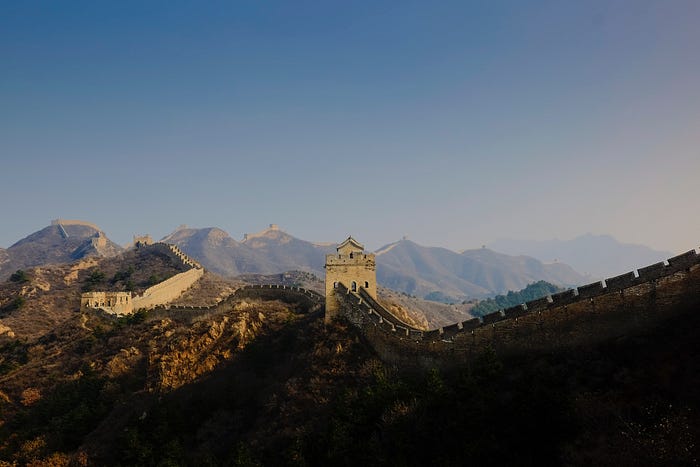And would we know if there was?

Rumors have been swirling over the weekend, tearing across social media and even some news outlets like wildfire.
Whether there is any truth to these rumors- a military coup is underway in China, Chinese Communist Party head Xi Jinping has been taken into custody by the plotters, all flights in and out of the country have been suspended, massive protests are happening- it’s difficult to say for certain.
China, it is worth remembering now as any time, does not enjoy freedom of the press or the same access to information the rest of us enjoy. Chinese media agencies are state agencies; the state owns everything under communism. Every bit of information issuing from that quarter has passed through the maw of propaganda and protecting the party.
State owned media agencies certainly can’t be counted upon to objectively report on government businesses and the CCP maintains an iron-fisted grip on information flowing within the country.
But the CCP, for all its successes, just can’t seem to keep as tight a lid on things as they’d like. Not anymore. Much has changed in China over the past 50-years.
Five decades ago, China was still a world unto itself.
From the Great Wall to the Forbidden City, China’s government maintained a strict, uncompromising distance from their Western counterparts.
China even maintained a certain distance from its nearest neighbors.
During World War II, China quietly fought in the Pacific theatre against the country’s then arch-enemy, Japan, then quietly went back to isolationism and independence from outside influence once global hostilities ceased.
Resisting the then-growing imperialism of the Japanese empire wasn’t the same thing as joining the global community. The enemies of China’s great enemy weren’t exactly friends; and they certainly didn’t stay friends.
During most of the subsequent Cold War between the winners of the WWII conflict, China maintained a distrustful distance, as watchful of the intentions of Russia as of the United States.
But China couldn’t stay isolated forever.
As the lines of trade and communication began to gradually open, leaders in China and all around the world watched in trepidation. Some fears proved completely unfounded and hysterical. Others have proved in the fullness of time- so far- to be overly optimistic.
Trade with democracies and capitalist nations was supposed to make the Chinese people more free. Yet Chinese Democracy remains ever elusive.
Instead, the export of U.S. technology has produced a Chinese citizenry under constant police surveillance by a ruling party obsessed, by necessity, with ruthlessly suppressing political dissent.
Anything that threatens the power of China’s one-party state suffers the same treatment; religious and ethnic minorities are persecuted and imprisoned, political dissidents are arrested all over the world by a regime willing to exploit Interpol’s “red notice” system.
Power maintained in such a way is brittle, vulnerable; even more dangerous.
If a professional female Chinese tennis player accuses a party official of sexual misconduct, she disappears- only to reappear in a video long enough to disavow her previous statements and fail to reassure an international tennis community concerned for her safety.
Even China’s wealthiest man can’t afford to let slip the tiniest criticism of the Chinese Communist Party, lest he too mysteriously drop out of sight for a few weeks before surfacing against a chastened, and far less wealthy, man.
In the decades since China joined the rising global community, exposure to capitalism and democracy hasn’t made the Chinese people more free. Even worse for the Chinese populace, communism has failed to deliver on a much wider scale.
Under the Chinese “Communist” Party, China hasn’t become a shining beacon of communism; on the contrary. The CCP is, at its heart, a merchant class, taking advantage of China’s vast resources and workforce to manufacture cheap goods to sell to capitalist countries.
The gap between the haves and have-nots in China is as wide as anywhere else on earth, with far more power concentrated at the very top in the government rather than in the private sector.
The only way a relative handful of elected officials can govern a nation of 1.4 billion people is with the consent of the governed. Only Xi Jinping and the Chinese Communist Party don’t have the consent of the governed.
Governments acting with the consent of the people they govern don’t need to strictly control the flow of information by confining citizens to a carefully-policed “intranet”. Governments with the consent of the governed don’t need to create the world’s most advanced police surveillance state.
Almost a decade ago, it was the openly stated goal of the Chinese Communist Party to be able to find anyone, anywhere in China in under three minutes; they were then at seven minutes.
Ruling a country openly through force has limited application, however. It requires a certain degree of isolation and a deep commitment surveillance and censorship in the modern age.
The harder any government makes it for its citizens to organize and assemble, the harder those citizens will work to do exactly that. It’s human nature.
“Forbide us a thyng, and that thyng desiren we,” as Chaucer once wrote.
The harder Chinese authorities work to keep that nation’s citizens from accessing the same open internet other nations enjoy, the harder a certain percentage of the global population is going to work, from within and without, to overcome those controls.
The higher the Chinese Communist Party builds the Great Firewall of China, the harder people will work to tear down that wall.
(contributing writer, Brooke Bell)